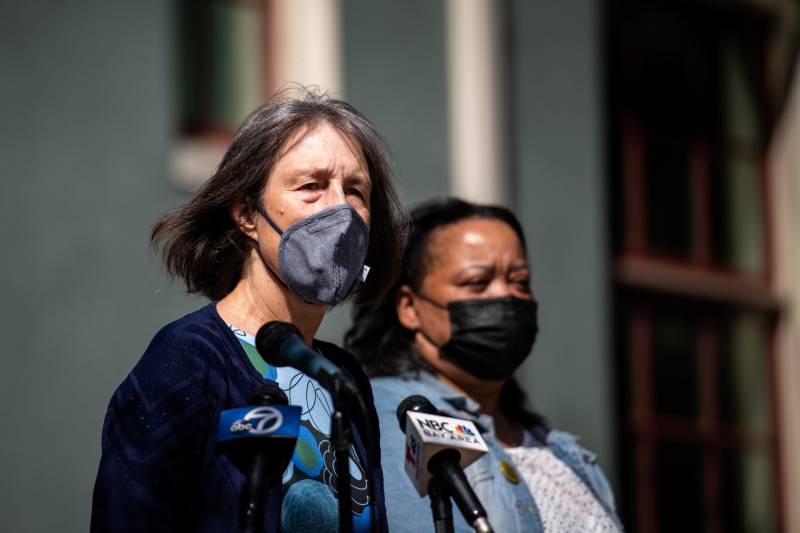Updated Oct. 4, 2021, 2:30 p.m.
Gov. Gavin Newsom signed a bill into law on Monday that aims to improve the survival rates of Black and Indigenous people and their babies during childbirth in California.
Black people were six times more likely to die within a year of pregnancy than white women from 2014 to 2016 and had a higher rate of death than Black women nationally from 2014 to 2017.
In California, Black and Native American babies die at a rate more than double the state average. Black birthing people die at more than three times the state average.
Senate Bill 65, also known as the California Momnibus Act, will collect more details about pregnancy-related deaths, diversify the experts looking at that data and require them to recommend ways to reduce racial and socioeconomic gaps. It also would expand access to doulas and midwives, whose presence can drive better care.
"Every individual deserves to have a healthy pregnancy and birth, and this bill will help make this a reality for more California families,” Newsom said in a press release. “It is unacceptable that the maternal and infant mortality rate among Black and Indigenous communities remains significantly higher than the state average."
SB 65, co-authored by Democratic state Sen. Nancy Skinner, D-Berkeley, formalizes a committee that is tasked with investigating every death of a birthing person and allows for voluntary interviews of family members to better understand what happened. It also looks into pregnancy-related deaths among members of the LGBTQ+ community.
"Gov. Newsom’s signing SB 65, the California Momnibus Act, represents a significant victory for Black maternal and infant health. Despite our medical advances, more U.S. babies and mothers die during birth than in all other high-income countries, and these preventable deaths are disproportionately higher for Black families,” said Skinner, who is also vice chair of the Legislative Women’s Caucus. “With the enactment of SB 65, California will help close racial disparities in maternal and infant deaths and save lives."
The bill also increases Medi-Cal coverage to a full year postpartum. Previously, birthing people in lower-income families were kicked off Medi-Cal, California's version of the federal Medicaid program, two months after giving birth.
"This bill affirms here in California these kinds of disparities in our maternal and infant outcomes will no longer be tolerated," said state Assemblymember Dr. Akilah Weber, D-San Diego, another co-author of SB 65.
See the signing below:
Original post: Sept. 27, 2021
California has among the lowest death rates nationally among pregnant and birthing people, but the numbers for Black people in those populations tell a different story.
They were six times more likely to die within a year of pregnancy than white women from 2014 to 2016 and had a higher rate of death than Black women nationally from 2014 to 2017, the most recent time frame for which data is available.
